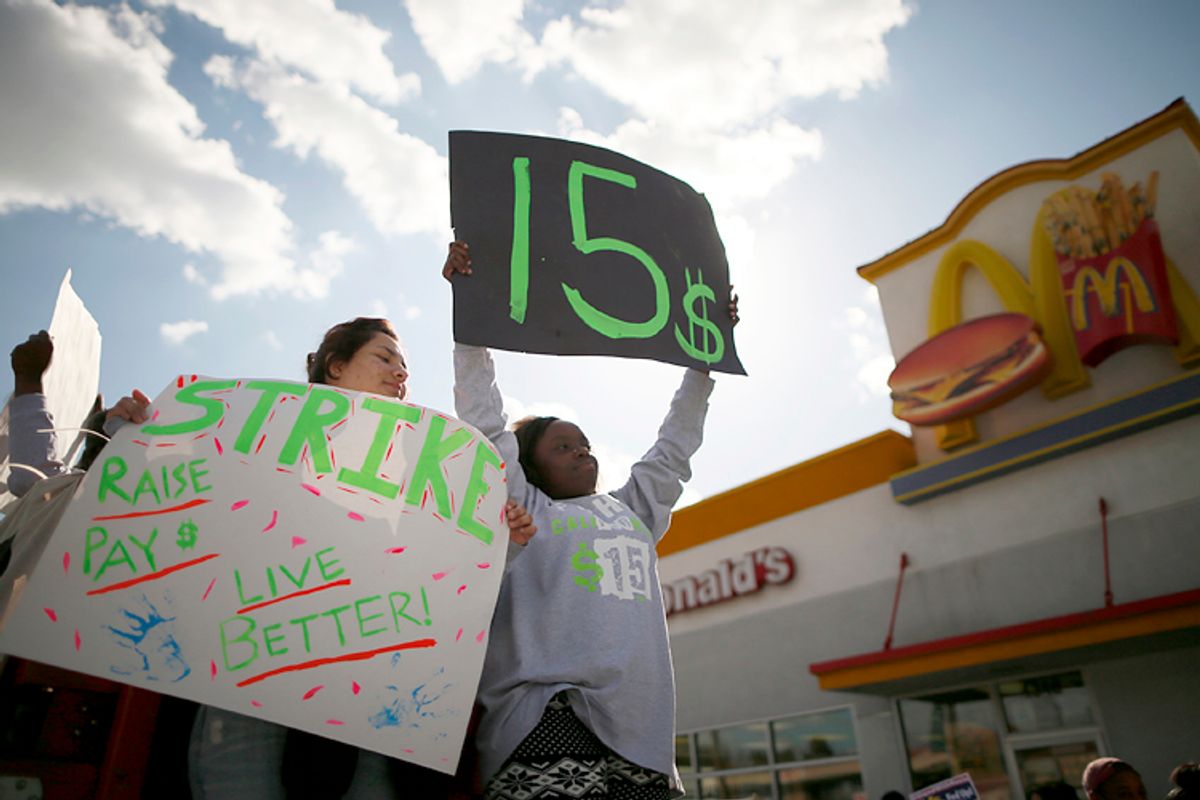Following a county judge’s ruling dramatically narrowing the scope of an airport town’s landmark $15 wage law, labor groups plan to take their case to the Washington state Supreme Court.
“The legal issue in front of the court will be whether the airport is a legal island immune from decisions from the voters – in this case Seatac – to bring back good jobs to our community,” Service Employees International Union Local 6 president Sergio Salinas told reporters at a New Year’s Eve press conference. “The larger issue is about multinational corporations making huge profits at our publicly owned entities and airports, when thousands of people doing the hard work these days don’t make enough to feed their families.” Salinas cited the profits of plaintiff Alaska Airlines; in October, Alaska Air Group CEO Brad Tilden celebrated “our best quarter ever” and “Alaska’s 18th consecutive quarterly profit,” according to the local News Tribune. Alaska Airlines did not immediately respond to a morning inquiry.
As I’ve reported, the $15 law, passed by a narrow referendum in November, establishes the country’s highest municipal minimum wage; though with exclusions for some non-airport businesses, as written it covers only about 6,000 workers. Proponents project that Judge Andrea Darvas’ Dec. 27 ruling, which excludes those “doing business on property under the exclusive jurisdiction of the Port of Seattle” from the law, would cut that figure to less than 2,000. “The Washington State Legislature,” Judge Darvas wrote in her Dec. 27 decision, “has clearly and unequivocally stated its intent that municipalities other than the Port of Seattle may not exercise any jurisdiction or control over SeaTac Airport operations, or the laws and rules governing those operations.”
The passage of the $15 law has been claimed by supporters of the past year’s fast food strikes – in which workers backed by the Service Employees International Union staged one-day work stoppages to demand $15 per hour and union rights – as a concrete consequence of their efforts. Supporters and opponents have described the Seatac example as one that could spread – including to nearby Seattle, where both mayoral candidates voiced support for the concept of a $15 wage floor. (Two local think tanks opposed to the $15 law received donations from the Charles and David Koch-funded Donors Trust.) Citing the leadership of “the workers of Seatac," Seattle's newly elected socialist City Council member Kshama Sawant told Salon in November, “We are going to be pushing forward for $15 an hour minimum wage in Seattle in 2014."
In his 2013 State of the Union address, President Obama urged that Congress raise the federal minimum wage from its current $7.25 to $9, and index it to account for inflation (Congress did neither). Obama has more recently backed a proposal from Senate Democrats to raise the wage to $10.10. New minimum wage laws or annual cost of living increases in 13 states – including New York ($8) and Connecticut ($8.75) – went into effect Jan. 1.



Shares